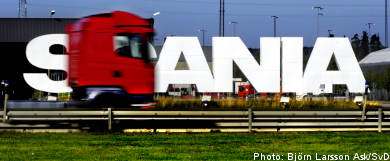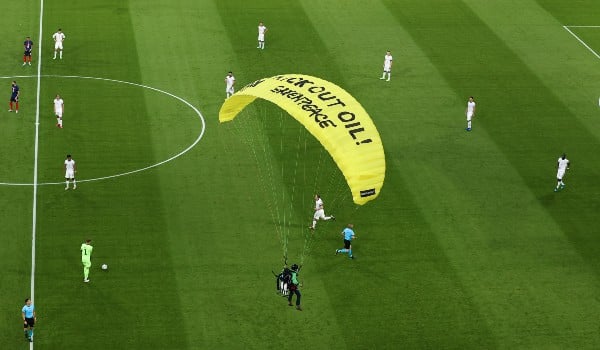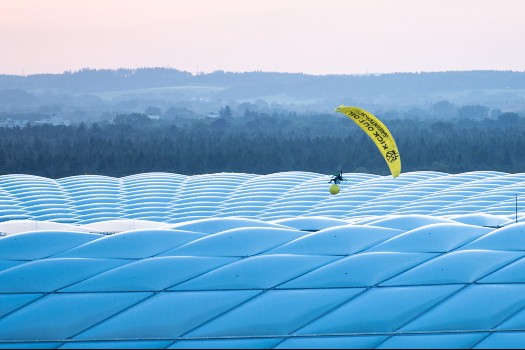The German carmaker announced Monday that it had won control of Scania, but is expected to maintain Scania’s engineering centres in Södertälje, near Stockholm.
It now holds 68.60 percent of the voting rights and 37.73 percent of the capital in the truck-maker after buying shares from the Wallenberg family for 2.9 billion euros ($4.4 billion).
“We’re not concerned,” Scania’s main workers union IF Metall said in a statement, adding that Volkswagen was “a good, long-term industrial owner.”
“The important thing for us is that Scania be able to continue as an independent company, with its own technological development and its own headquarters,” it added.
Swedish Prime Minister Fredrik Reinfeldt also reacted positively to the news.
“Volkswagen has shown that it believes in Scania … They are willing to maintain the brand, the research and development, and the management here in Sweden,” he told Swedish news agency TT.
Reinfeldt also stressed that it was important for Sweden to maintain a strong business climate for research and business development in the industrial sector.
The reactions contrasted sharply with the anger that engulfed Sweden after Saab was sold to US carmaker General Motors in two stages in 1990 and 2000, and when Volvo was taken over in 1999 by another US group, Ford.
Fears abounded at the time that production would move abroad and that the loss of top brand names would represent a heavy blow to the Swedish economy.
But according to sector analysts, including Anders Bruzelius at Swedbank Markets, Swedes have since comes to terms with the foreign ownership because “Saab and Volvo are still viewed as Swedish companies.”
“Today, Volvo Cars’ three slogans ‘safety, reliability and family cars’ are still associated with the Swedish brand name and not with Ford,” said another analyst who spoke on condition of anonymity.
Observers stressed that in the case of Scania, the industrial logic of bringing Scania under Volkswagen’s wing was entirely separate from the brand name, which Volkswagen would be keen to preserve owing to Scania’s strong reputation for quality and technological prowess.
“Everybody knows (Scania’s) origin. In terms of brand it will stay Swedish anyway,” Magnus Axen, an analyst at Evli Bank told AFP.
“It’s more a political issue but there is an industrial logic to this deal,” he said.
He noted that Scania would have taken a risk by choosing to go it alone, given that the current boom in the European heavy trucks market is expected to soon come to an end.
Alexis Albert, an analyst at Natixis Securities, added that Volkswagen, German truckmaker MAN and Scania would together be able to benefit from synergies, amid costly research and development programmes currently focused on developing environmentally-friendly motors.
“I don’t think (the acquisition by Volkswagen) will have much influence on the corporate culture, which will remain Swedish,” Albert said.
“These are Swedish engineers, it’s a Swedish culture, it’s Swedish know-how,” he added.
The only automotive group remaining wholly independent in Sweden is Volvo Trucks.




 Please whitelist us to continue reading.
Please whitelist us to continue reading.